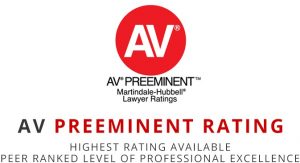Short Sale Homeowner Receive Tax Relief For Three More Years: Mortgage Forgiveness Debt Relief Act Explained
Homeowners who are victims of the burst housing bubble found a solution to their plummeting home values and their underwater mortgages in the popular trend of short sale transactions. This act of allowing the lender to accept the sale of the home for less than is owed, and forgiving the homeowner for the balance of the mortgage seemed like a viable alternative to a foreclosure. Less risk to the credit rating for the homeowner and less risk for the lender because they would find a buyer willing to buy off some of the debt rather than letting the home sit in foreclosure for an indeterminate period of time.
But this seemingly semi-ideal scenario raised one question: what is the tax responsibility to the homeowner for the debt that is forgiven? According to the United States Federal Tax Code, any debt that is forgiven, including mortgage debt, is treated as income and is therefore subject to income tax. This would mean the homeowner would be responsible for paying taxes on the difference between the mortgage debt and the sale price. This could mean a tax penalty of thousands of dollars for some homeowners.
Until Congress eased their concerns by enacting the Mortgage Forgiveness Debt Relief Act of 2007. Under this act, homeowners received mortgage debt forgiveness as a result of a reduction in principal, foreclosure or short sale on their primary residence up to $2,000,000.
Homeowners were scrambling to close their short sale transactions prior to the end of 2012, as the act was scheduled to expire on December 31, 2012. But thanks to heavy campaigning by realtors and the National Realtor Association, the Mortgage Forgiveness Debt Relief Act was extended for another year, through December 31, 2015.
With short sales accounting for 22% of all real estate transactions in 2012, it is still a good alternative to a foreclosure. But short sale transactions can be complicated and time consuming.
Adams Law, P.A. has the ability to assist homeowners who are struggling with their mortgage payments and provide them with the help that is required to possibly accomplish the short sale of their property.
Our service does not require any upfront fees nor is there any charge to the Seller, Buyer or Realtors. We negotiate our fees with the Lender and it is up to them to approve and pay them. For questions or assistance with a short sale transaction, call Adams Law at (888) 724-9860 for a free consultation.


